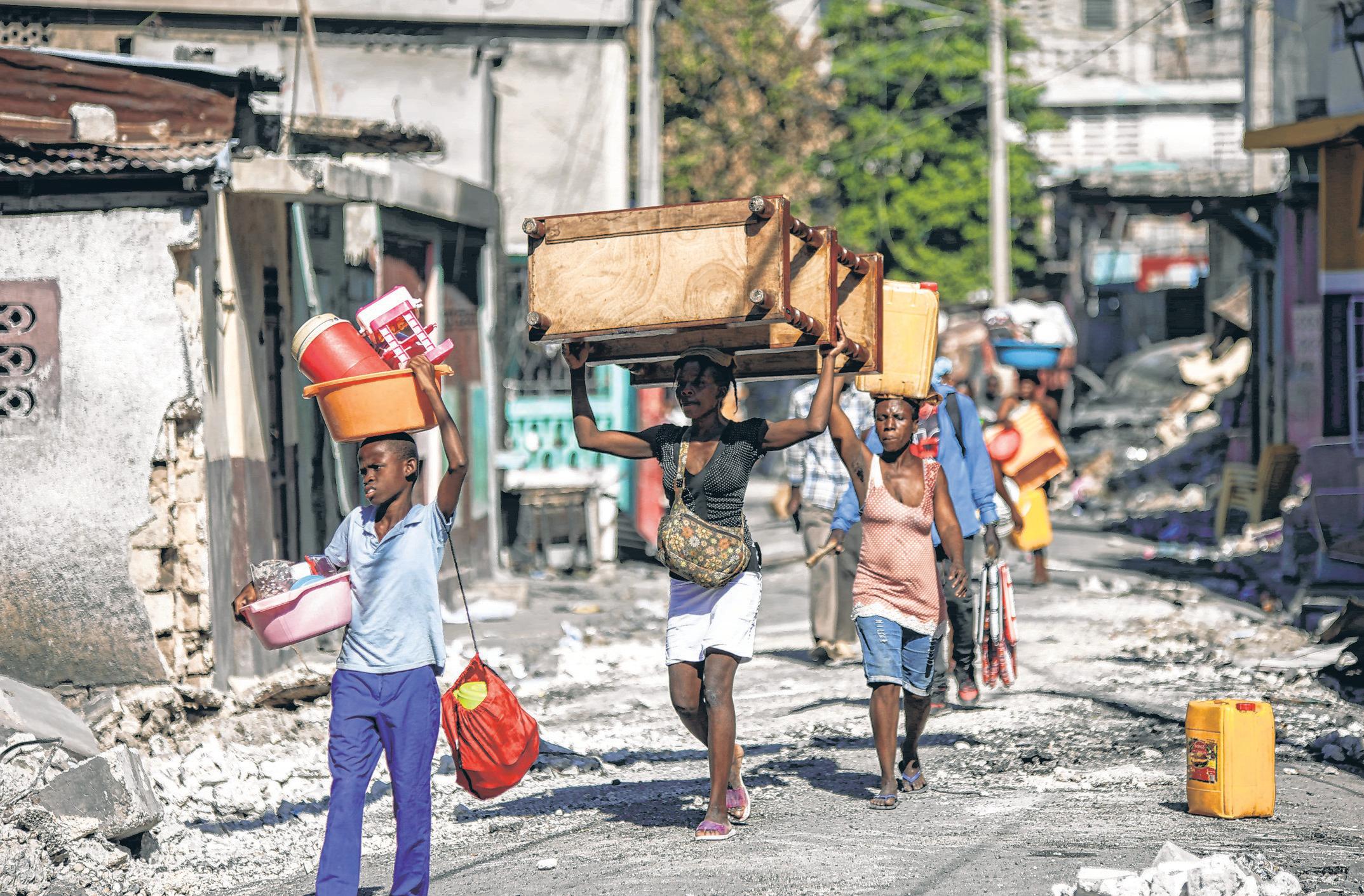
Now, it is one of the last ways to escape Port-au-Prince, the capital city where violent gangs have cut off other road and sea routes for fleeing Haitians. Each day, scores of Haitians carrying suitcases and mattresses take the daylong, sometimes dangerous journey along the rocky route to get to the country's southern coast, a haven from the urban warfare.
The rush to flee highlights the worsening security conditions in Haiti. Gang leaders have seized control over some 90% of the capital since toppling an interim government in March. A U.S.-funded, Kenya-led international police force that was deployed in June is struggling to fight back, leaving average citizens to fend for themselves.
"To live in Port-au-Prince right now is to live in hell, like an open-air prison," said Marie Yolene Gilles, a humanrights advocate in the city who described how friends and colleagues have had to take the remote route south. "We're closer to death than to life. People are willing to risk it all to get to the countryside."
The precarious situation underscores challenges that await the incoming administration of President-elect Donald Trump, which has promised to strip Haitian migrants in the U.S. of protected status and carry out mass deportations. For Haitians, deportation would mean returning to a country where gunmen fight in the streets over lucrative trades in smuggling, extortion and kidnapping-for-ransom, security analysts said.
More than 200 people were killed in a Port-au-Prince slum in early December when a gang boss sent followers with machetes to hunt people he believed were practicing witchcraft, rights groups that documented the massacre said.
この記事は The Wall Street Journal の December 30, 2024 版に掲載されています。
7 日間の Magzter GOLD 無料トライアルを開始して、何千もの厳選されたプレミアム ストーリー、9,000 以上の雑誌や新聞にアクセスしてください。
すでに購読者です ? サインイン
この記事は The Wall Street Journal の December 30, 2024 版に掲載されています。
7 日間の Magzter GOLD 無料トライアルを開始して、何千もの厳選されたプレミアム ストーリー、9,000 以上の雑誌や新聞にアクセスしてください。
すでに購読者です? サインイン